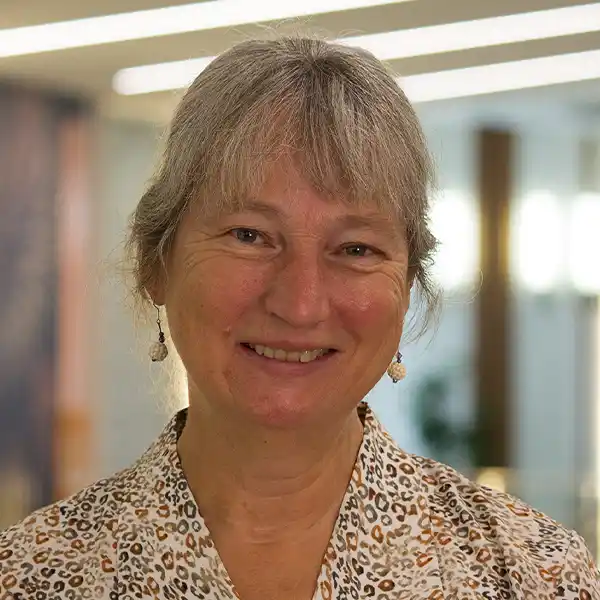Season of Changes
Message from the Department Head

It has been another busy, productive, and successful year in the department. I’m excited to share with you in this issue of Anthropos the stories of my colleagues and highlight the experiences of some of the wonderful students who make the department such a great place to do and teach anthropology.
This academic year kicked off with the first faculty retreat we’ve had in nearly 20 years. We spent a day together in the beautiful setting of the University of Tennessee Arboretum discussing how university changes in budgeting, enrollment, and organization will affect the department and how best to respond and plan for them. We also strategized about future growth and curricular changes. Most importantly, the retreat was a chance to engage with each other, brainstorm, and share experiences in a setting outside of the daily demands of life in Strong Hall. I hope to make retreats a part of our annual cycle going forward.
Our program continues to thrive, with another year of increasing undergraduate enrollment. Because the interests and needs of our students and the department continue to change, we have been busy adjusting our curriculum and welcoming new colleagues.
Last May, Micah Swimmer of the Eastern Band of Cherokee Indians led the university’s first-ever course that centered Cherokee language instruction within a broader discussion of contemporary Cherokee culture. The course, housed in anthropology, included students from across the university and was a great success. We will offer it again this year as part of May mini-term. We also put into place a new undergraduate concentration in archaeology, which will start in the fall. The concentration provides a more structured pathway for students interested in focusing their studies on archaeology and will include requirements for field and laboratory work in addition to coursework in archaeological method and theory. We’re also working to build partnerships with local archaeological firms to provide our students with internship and employment opportunities.
In August we welcomed biological anthropologist Steven Lautzenheiser to the department as a new tenure-line faculty member. Steven specializes in biomechanics of the foot and ankle in modern humans and teaches courses in human anatomy, paleontology, evolutionary biology, and primate evolution.
Four new lecturers – Karim Alizadeh, Alemayehu Jorgo, Ehsan Lor Afshar, and Amanda Williams – have also joined the faculty this year. Their courses are providing our students with opportunities to learn about new areas of scholarship, including anthropological perspectives on money, pastoralism in East Africa, ancient borderlands in Iran, and the treatment of the dead.
I am happy to announce that Raja Swamy earned tenure and promotion to associate professor, and Ben Auerbach was promoted to professor. We are pleased to welcome Terrie Yeatts to the department as our new accounting coordinator, and Sarah Taylor from the College of Arts and Sciences as our new undergraduate academic advisor.
We have begun collaborations with the McClung Museum’s new environmental archaeologist Alison Damick, and with Zachary Garrett, the new NAGPRA coordinator, in the Office of the Provost.
We are also at a time of transitions. In the spring, faculty gathered for a farewell dinner to celebrate the career of Distinguished Professor of Science Jan Simek, who retired after 38 years at the university. An expert in the archaeology of Paleolithic Europe and cave archaeology, most recently in the Southeast, he served as department head from 1992 to 2000 and again from 2014 to 2017. He also was chancellor of the university from 2008 to 2009 and president from 2009 to 2010. Jan continues his affiliation with the department as professor emeritus.
Lee Meadows Jantz, associate director of the Forensic Anthropology Center and distinguished lecturer, plans to retire from teaching at the end of the spring semester. Lee joined the department in 2000 and is an expert in skeletal biology, forensic anthropology, and human growth and development. She is responsible for the body donation program and curates the William M. Bass Donated and Forensic skeletal collections.
After a nearly 22-year career at the university, Professor David Anderson, a leading scholar of southeastern archaeology, former associate head, and current director of graduate studies, will retire in July. Staff member Kathy Berry will retire next month after five years with the department, during which time she has been the public face of the department for students in Strong Hall. We are grateful for all of their contributions over the years and wish them all the best.
I hope you enjoy this issue of the newsletter. Please reach out if you’d like to learn more about the department or share your memories and ideas with us.
-Barbara Heath
Professor and Head